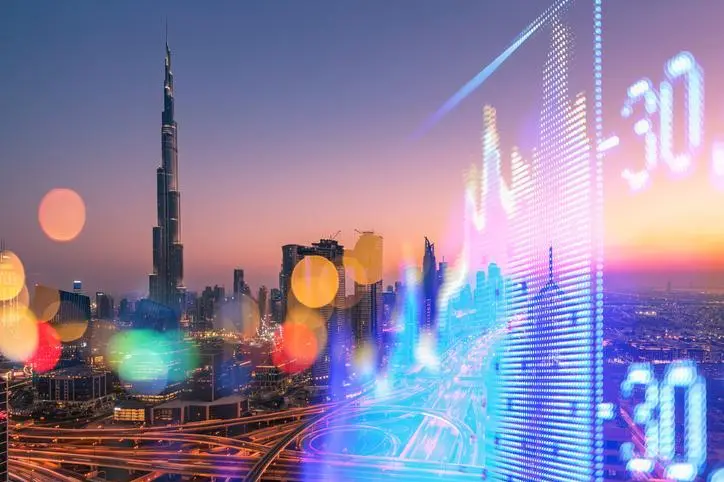PHOTO
The UAE’s economic outlook remains positive, supported by strong domestic activity with the overall GDP projected to grow at 3.6 per cent in 2023, the Executive Board of the International Monetary Fund (IMF) said on Monday.
Following the the 2022 Article IV consultation with the UAE, the IMF’s directors forecast 3.8 per cent surge in non-hydrocarbon growth driven by continued tourism activity and increased capital expenditure. “Nevertheless, the outlook is subject to significant global uncertainties, including weaker growth, tighter financial conditions, and geopolitical developments.”
The IMF’s board estimated the country’s overall growth in 2022 to reach 6.9 per cent, with non-hydrocarbon GDP growth of 5.3 per cent while hydrocarbon GDP is expected to grow by 11.1 per cent. Inflation has risen with global trends but is expected to ease to 3.4 percent in 2023.
Fiscal and external surpluses, according to the IMF, are expected to remain high on the back of elevated oil prices. “Banks are adequately capitalised and liquid overall, but non-performing loans remain elevated, albeit down from recent peaks, and real estate prices have risen sharply in some segments,” said the IMF.
The IMF board has observed that the UAE has taken major efforts under the National AML/CFT Strategy and Action Plan to further strengthen the regulatory regime to ensure its effectiveness, in line with the enhanced monitoring under the Financial Action Task Force recommendations.
Commending the implementation of enhanced reform efforts that posed upside risks to medium-term growth, the IMF said the UAE's strong reform efforts continue under the UAE 2050 strategies. “Advancement on Comprehensive Economic Partnership Agreements (Cepas) will boost trade and integration in global value chains and further attract Foreign Direct Investment (FDI).”
In addition, the Washington-based Fund said the benefits of artificial intelligence and digitalisation and investments in enabling infrastructure will further support economic diversification, foster a smooth energy transition, and help address vulnerabilities from global decarbonisation efforts. “Long-term vulnerabilities from global decarbonisation efforts are being addressed through commitments to climate initiatives and a balanced approach to energy transition.”
The IMF board commended the UAE’s effective Covid response, timely policy actions, and structural reform implementation, leading to strong growth, further supported by high oil prices.
However, in the context of significant global uncertainties and risks, the IMF encouraged the UAE authorities to further solidify the fiscal position and further strengthen the financial sector, diversify the economy, and continue implementing reforms necessary to achieve the nation’s ambitious green transition goals.
The IMF’s board welcomed the ongoing development of trade and economic partnerships, which are expected to boost the UAE’s productivity and competitiveness over time. They encouraged continued improvements in the collection and timely dissemination of economic data to buttress the authorities’ reform efforts.
The IMF noted that additional fiscal reforms would broaden and diversify the revenue base and support a smooth adjustment to a lower carbon future. It also stressed the importance of continuing efforts to improve fiscal transparency and strengthen governance and accountability by publishing general government, emirate- and federal-level fiscal data.
“Although overall bank balance sheets remain healthy, continued close monitoring of financial stability risks and further strengthening of macroprudential frameworks is warranted, including given the high level of non-performing loans, tightening financial conditions, and banks’ exposures to the real estate sector,” the IMF board said.
The Fund encouraged continued actions by the UAE to further strengthen the regulatory regime in line with the enhanced monitoring under the Financial Action Task Force. The IMF also welcomed the UAE’s ambitious structural reform agenda, including significant investment in digital and green initiatives to further advance diversification and support a smooth energy transition to a lower carbon future. “These efforts could be further enhanced with additional measures to improve the business environment and modernise the labour market, including by continuing to encourage greater female participation,” the IMF said.
Copyright © 2022 Khaleej Times. All Rights Reserved. Provided by SyndiGate Media Inc. (Syndigate.info).




















